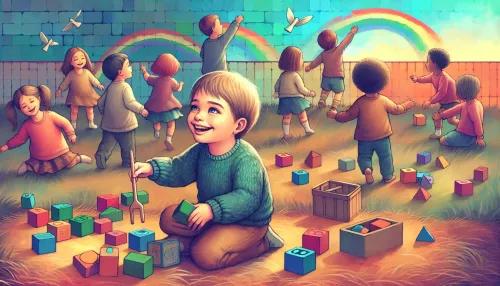
Exploring the Social Isolation Challenge in Autistic Children

Autism spectrum disorder (ASD) presents a unique set of challenges for children, with social isolation being one of the most prevalent. "HorizonsMind Blog" understands the importance of addressing this issue to foster a supportive and inclusive environment for autistic children.
Understanding the Impact of Social Isolation on Autistic Children
Social isolation significantly affects the overall well-being of autistic children. It can lead to heightened anxiety, depression, and an increased sense of loneliness. Moreover, it may hinder the development of crucial social skills, further exacerbating their challenges in building and maintaining relationships.
Strategies for Identifying Signs of Social Isolation in Autistic Children
Recognizing the signs of social isolation in autistic children is essential for timely intervention. Some indicators include withdrawal from social activities, minimal eye contact, difficulties in initiating or sustaining conversations, and a lack of interest in forming friendships. A comprehensive understanding of these signs enables parents and caregivers to provide the necessary support.
Fostering a Sense of Community and Belonging for Autistic Children
Building a strong support system is integral to combating social isolation. We encourage the creation of safe spaces where autistic children feel accepted and valued. By promoting inclusivity in schools, community centers, and recreational facilities, autistic children can develop a sense of belonging within their peer groups.
Nurturing Positive Social Interactions and Friendships for Autistic Children
Encouraging positive social interactions is pivotal in alleviating social isolation. Facilitating opportunities for collaborative play, structured group activities, and peer buddy systems can empower autistic children to build meaningful connections with their peers. These interactions contribute to their emotional well-being and foster a sense of camaraderie.
Introducing Innovative Approaches to Address Social Barriers in Autism
Innovative interventions such as social skills training programs, sensory-friendly events, and customized communication tools are instrumental in breaking down social barriers. These initiatives equip autistic children with essential skills while accommodating their specific needs, ultimately promoting active participation in social settings.
Collaborative Efforts in Creating Inclusive Social Environments for Autistic Children
The collective effort of educators, community organizations, healthcare professionals, and parents plays a vital role in creating inclusive environments. By advocating for sensory-friendly spaces, implementing inclusive policies, and organizing autism awareness campaigns, communities can work together to ensure that autistic children feel supported and embraced.
Overcoming Stigma and Promoting Acceptance in Social Settings for Autistic Children
Challenging misconceptions about autism is key to fostering acceptance within social settings. Education and awareness initiatives can debunk myths surrounding ASD, encouraging empathy and understanding among peers and adults. By creating a culture of acceptance, the stigma associated with autism diminishes, allowing for genuine inclusion.
Leveraging Technology for Virtual Social Connections Among Autistic Children
In today's digital age, technology offers innovative solutions for fostering social connections among autistic children. Virtual platforms tailored to their needs facilitate meaningful interactions with peers in a controlled environment. Online communities and virtual support groups provide avenues for socialization while accommodating individual preferences and comfort levels.
As "HorizonsMind Blog" underscores the importance of addressing the challenge of social isolation in autistic children, incorporating these strategies can effectively nurture a supportive and inclusive environment that enriches the lives of autistic individuals.


